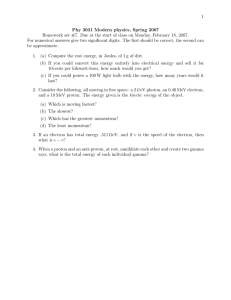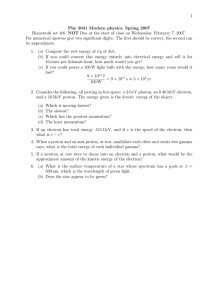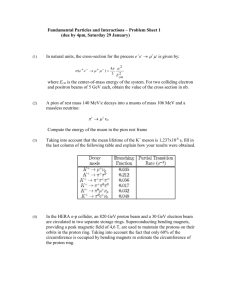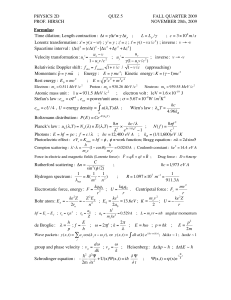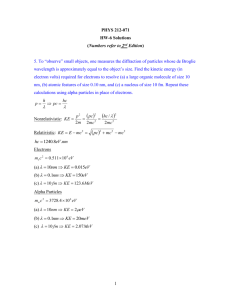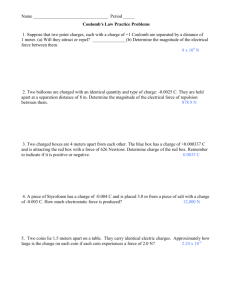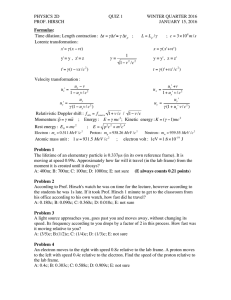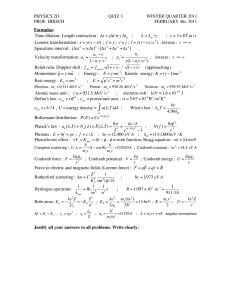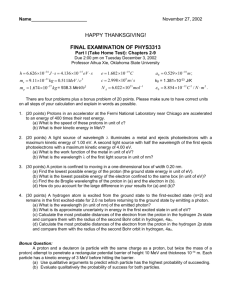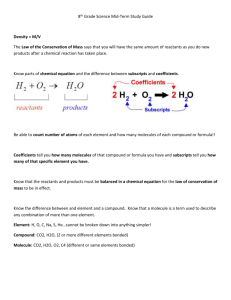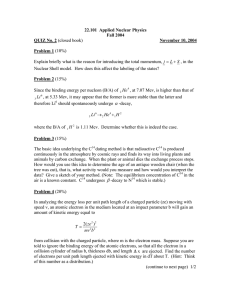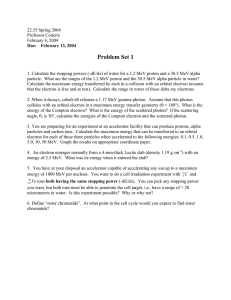Physics 215 Test #1: Waves, Relativity, Photoelectric Effect
advertisement
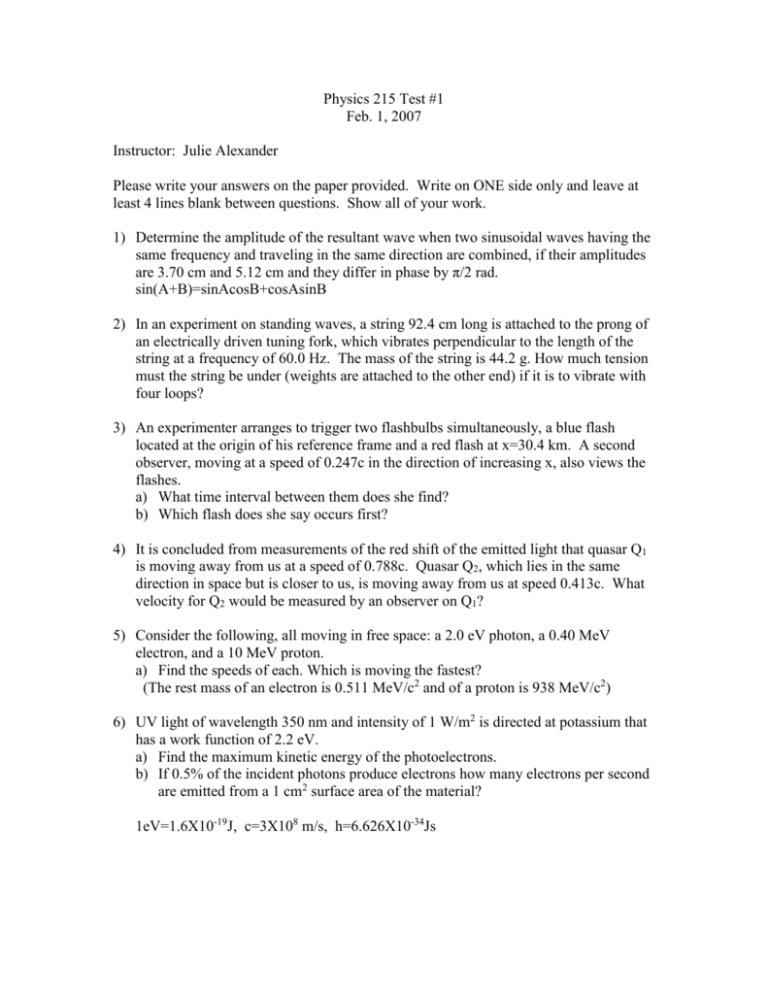
Physics 215 Test #1 Feb. 1, 2007 Instructor: Julie Alexander Please write your answers on the paper provided. Write on ONE side only and leave at least 4 lines blank between questions. Show all of your work. 1) Determine the amplitude of the resultant wave when two sinusoidal waves having the same frequency and traveling in the same direction are combined, if their amplitudes are 3.70 cm and 5.12 cm and they differ in phase by π/2 rad. sin(A+B)=sinAcosB+cosAsinB 2) In an experiment on standing waves, a string 92.4 cm long is attached to the prong of an electrically driven tuning fork, which vibrates perpendicular to the length of the string at a frequency of 60.0 Hz. The mass of the string is 44.2 g. How much tension must the string be under (weights are attached to the other end) if it is to vibrate with four loops? 3) An experimenter arranges to trigger two flashbulbs simultaneously, a blue flash located at the origin of his reference frame and a red flash at x=30.4 km. A second observer, moving at a speed of 0.247c in the direction of increasing x, also views the flashes. a) What time interval between them does she find? b) Which flash does she say occurs first? 4) It is concluded from measurements of the red shift of the emitted light that quasar Q1 is moving away from us at a speed of 0.788c. Quasar Q2, which lies in the same direction in space but is closer to us, is moving away from us at speed 0.413c. What velocity for Q2 would be measured by an observer on Q1? 5) Consider the following, all moving in free space: a 2.0 eV photon, a 0.40 MeV electron, and a 10 MeV proton. a) Find the speeds of each. Which is moving the fastest? (The rest mass of an electron is 0.511 MeV/c2 and of a proton is 938 MeV/c2) 6) UV light of wavelength 350 nm and intensity of 1 W/m2 is directed at potassium that has a work function of 2.2 eV. a) Find the maximum kinetic energy of the photoelectrons. b) If 0.5% of the incident photons produce electrons how many electrons per second are emitted from a 1 cm2 surface area of the material? 1eV=1.6X10-19J, c=3X108 m/s, h=6.626X10-34Js Answers: Each question was worth 5 marks. 1) 6.32 cm 2) 36.7 N 3) (a) -2.58 X 10-5 s (b) red 4) -0.556c 5) photon v=c electron v=0.827c proton v=0.145c 6) (a) 1.34 eV (b) 8.8X1011 electrons/s
